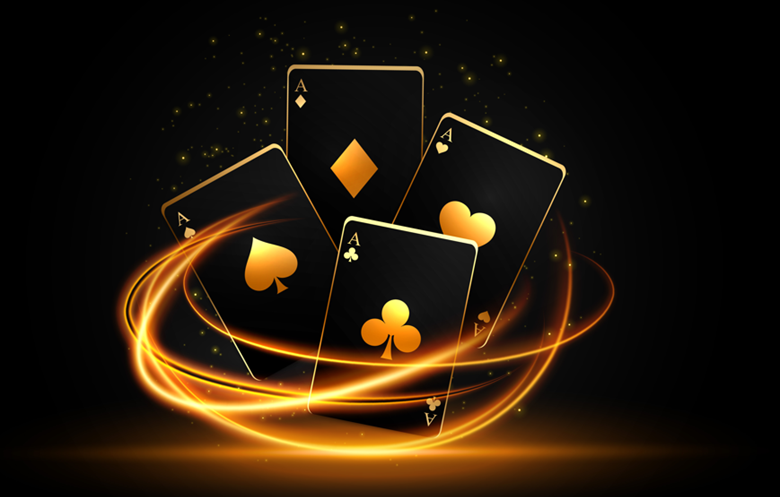Gaming and gambling have become two of the most exciting pastimes in the modern world. Both offer thrilling experiences, but they come with their own unique flavor. As digital landscapes expand, these activities increasingly overlap, leading to intriguing discussions about where one ends and the other begins.
From high-stakes poker tables to immersive video game worlds, players seek entertainment, challenge, and sometimes fortune crazy vegas online casino australia. But what drives people toward one over the other? Is it merely chance or skill that keeps gamers glued to their screens—and gamblers at the table?
This exploration will dive deep into how gaming and gambling intersect while uncovering what makes each activity distinct. Whether you’re a passionate gamer seeking new adventures or someone curious about betting odds, there’s a fascinating journey ahead as we navigate this captivating crossroads together.
The Evolution of Gaming and Gambling
Gaming and gambling have undergone remarkable transformations over the decades. Initially, gaming was a simple pastime, often involving board games or physical activities. These experiences fostered social interaction among players.
As technology advanced, so did gaming. The rise of video games in the late 20th century introduced immersive worlds and complex narratives. Players could explore vast landscapes and challenge their skills against artificial intelligence or friends.
Gambling has also evolved significantly. From traditional casino settings to online platforms, it has become more accessible than ever. Virtual slots and live dealer games replicate the thrill of being in a physical casino from the comfort of home.
Now, both industries intersect through mobile apps that blend elements of strategy and chance. This convergence creates new opportunities for engagement but also blurs the lines between pure entertainment and risk-taking behavior.
The Similarities between Gaming and Gambling
Gaming and gambling share a common thread in their appeal. Both activities captivate players with the thrill of chance. Engaging gameplay keeps participants on the edge of their seats, whether it’s completing a quest or placing a bet.
Skill plays a significant role in both realms. In gaming, strategy can lead to victory, just as knowledge of odds can enhance success in gambling. Each environment offers rewards that fuel excitement and engagement.
Social interaction is another striking similarity. Multiplayer games create communities around shared experiences, while casinos often become social hubs for betting enthusiasts.
Both domains are influenced by technology’s rapid evolution. From immersive graphics to sophisticated algorithms, advancements continue to shape how players experience these pastimes.
The Differences between Gaming and Gambling
Gaming and gambling might sometimes seem similar, but they serve different purposes. Gaming is primarily about entertainment. Players engage in immersive worlds, storylines, and challenges. The focus lies on skill development and enjoyment.
On the other hand, gambling revolves around risk and reward. Participants wager money or valuables with the hope of winning more than they invested. It’s driven by chance rather than skill.
Furthermore, gaming often fosters community through multiplayer modes or online interactions. Gamers connect over shared experiences and strategies.
Gambling typically promotes individualism as players compete against odds or house rules alone. The thrill comes from uncertainty, making each session unpredictable.
While both activities can be engaging in their own right, understanding these nuances helps to appreciate what distinguishes them within modern culture.
Risks and Rewards: Comparing the Two Activities
Both gaming and gambling come with their unique sets of risks and rewards.
In gaming, the thrill often lies in skill development and immersive experiences. Players can invest time to improve their abilities, which may lead to success or satisfaction through achievements.
On the flip side, gambling tends to have a more immediate payoff dynamic. The excitement of winning money can be exhilarating but also fleeting. Many find themselves drawn into the chase for that next big win.
However, both activities can lead players down risky paths if boundaries aren’t established. Gaming might spawn unhealthy habits like excessive screen time, while gambling can escalate into financial difficulties.
Understanding these aspects is crucial for anyone engaging in either activity. Balancing enjoyment with mindfulness helps navigate potential pitfalls effectively while maximizing pleasure from each experience.
The Impact of Gaming and Gambling on Society
Gaming and gambling have woven themselves into the fabric of modern society. Their influence can be seen across various demographics, creating both communities and controversies.
Video games foster social connections, bringing players together from around the globe. They promote teamwork, strategy, and even creativity. Many find solace in gaming as a form of escape or relaxation.
Conversely, gambling often stirs debate due to its potential for addiction. While it offers excitement and financial opportunities for some, others face significant challenges. The lure of quick wins can lead to destructive behaviors that impact individuals and families alike.
Regulatory bodies attempt to strike a balance between enjoyment and safety within these realms. Awareness campaigns highlight responsible practices while encouraging informed participation in both industries.
As technology evolves, so does the interplay between gaming and gambling—reshaping perceptions about leisure activities within society’s evolving landscape.
Responsible Gaming and Gambling Habits
Responsible gaming and gambling habits are crucial for ensuring that both activities remain enjoyable and safe. With the rise of technology, it has become easier than ever to participate in online games or place bets from the comfort of your home. However, this convenience comes with a responsibility.
Setting limits is essential. Whether you’re playing video games or engaging in gambling, defining how much time and money you can spend helps maintain control over these activities. It’s important to recognize when fun turns into obsession. Taking breaks is also vital; stepping away allows for reflection on your gaming or gambling behavior.
Educating yourself about the odds in gambling is another key aspect of responsible engagement. Know what you’re getting into before placing a bet, as understanding risks can prevent disappointment later on. Similarly, being aware of game mechanics in video games fosters healthier competition rather than an unhealthy quest for victory at all costs.
Support systems play an invaluable role as well. Friends and family can help monitor behaviors while offering guidance if things begin to feel overwhelming. There are also numerous resources available—both online and offline—for those seeking assistance regarding their habits.
Maintaining balance between enjoyment and caution ensures that both gaming and gambling bring pleasure without leading to negative consequences. By fostering awareness around these practices, individuals create a healthier relationship with entertainment options available today.

